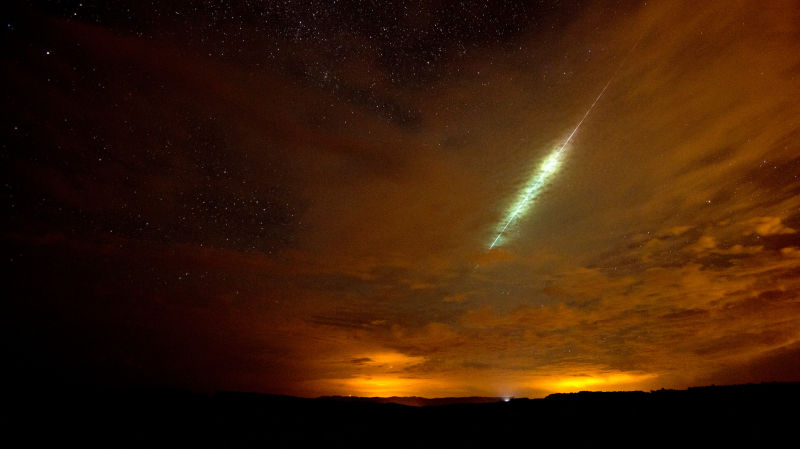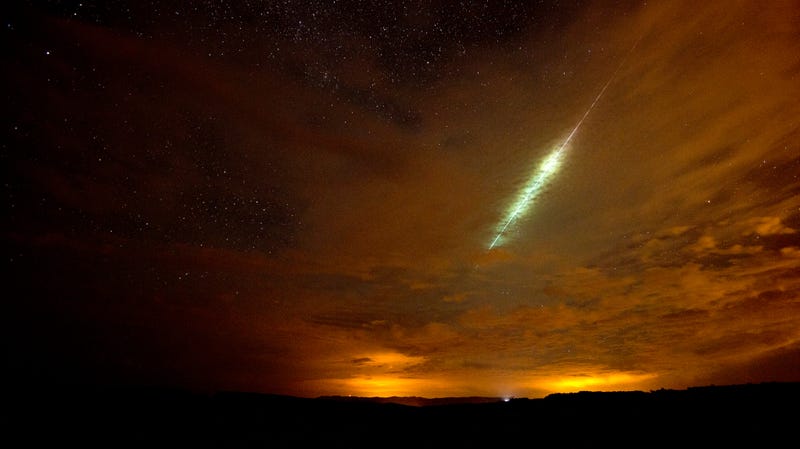One of the year’s most active meteor showers, the Perseids, will peak overnight Saturday into Sunday and Sunday into Monday, with 60 to 70 meteors per hour. But lots of Gizmodo readers live in cities. So, inspired by a friend’s tweet, I wondered—will city dwellers see the meteor shower?
The short answer is, if you find a dark spot away from the streetlights and get your eyes adjusted, weather permitting, you might be able to see some. The show gets better further from the lights.
Advertisement
First off, the Perseids are an annual meteor shower caused by dust, left over from the 109P/Swift-Tuttle comet, streaking through the atmosphere. The name comes from fact that the meteors appear to shoot out from the Perseus constellation. The shower is known for its large quantity of meteors, including the possibility of bright fireballs. It’s best seen in dark skies after 10pm, with more meteors closer to dawn.
So how dark should the sky be?
One paper from 1956 found that many of the meteors were brighter than a magnitude of 5, and many brighter than a magnitude of 3. If that’s accurate, it means that if you can see the stars of the Big Dipper, you should be able to see many of the Perseid meteors, astronomer Steven Bellavia from Brookhaven National Laboratory told Gizmodo.
Advertisement
But meteor magnitudes work a little differently from star magnitudes, University of Chicago astronomy professor Leslie Rogers told Gizmodo, since the meteors also have streaks. Bright city lights might still obscure some of the more interesting parts of the show.
But if you just look up while you’re walking on the sidewalk, you still probably won’t see them. “Even if the sky is dark enough, if you are exposed to any bright light nearby, your eyes will not be dark-adapted,” said Bellavia. If you’re out looking for meteors in the city, it’s worth finding the darkest spot you can, far from streetlights, and getting your eyes used to the dark for a half hour or so.
Even if you find ideal urban viewing conditions, there are a lot of other factors that can affect whether you see meteors, including whether the sky is clear and the properties of meteors themselves. Speaking from experience, I used to watch the show as a kid living a mile from New York’s JFK airport, and I generally saw a handful of meteors from my backyard with all the house lights turned off.
Advertisement
If you’re willing to travel, you can also seek out a darker sky for a truly spectacular show. Good luck out there, and if you get any good shots of the meteors, feel free to post them in the comments!














